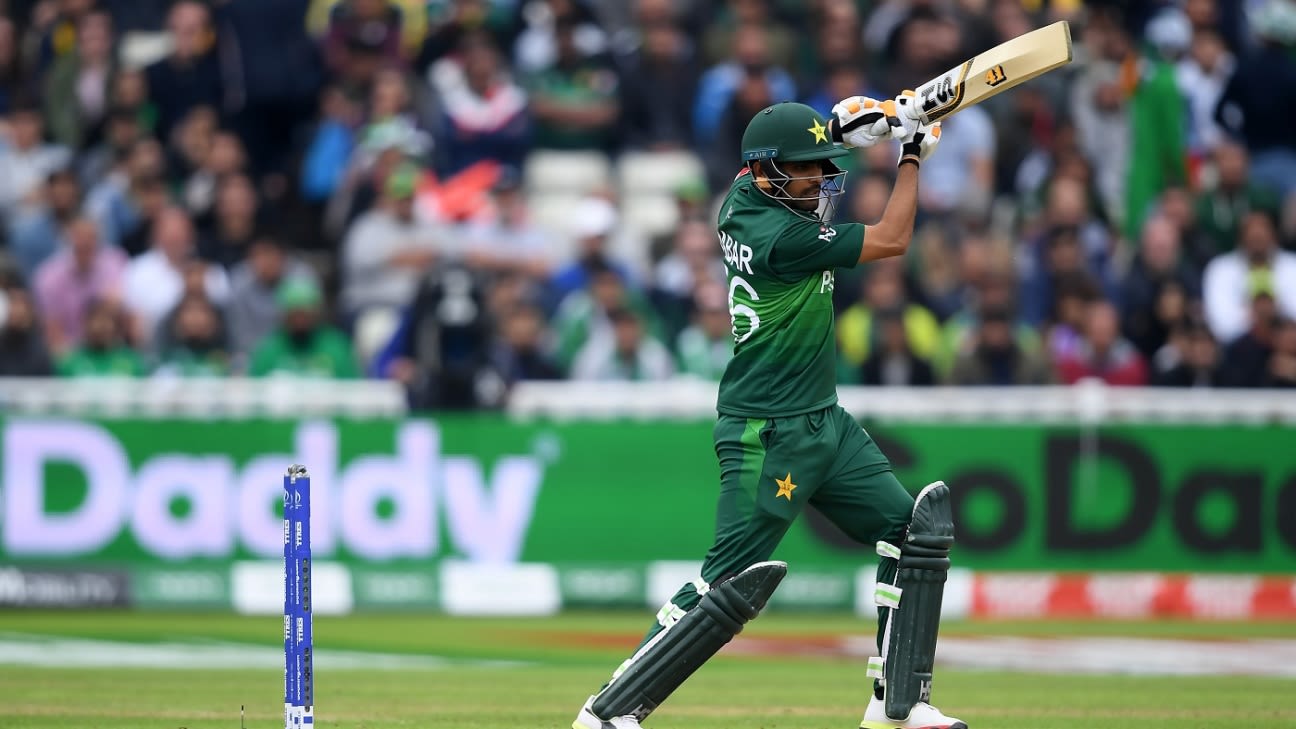
Pakistan's new white-ball leader Babar Azam wants to follow in former captain Imran Khan's footsteps and embrace controlled aggression. Last week, Azam was appointed Pakistan's ODI captain and the 25-year old is also the heir apparent to Azhar Ali in Test cricket.
"I would like to go with what I have learnt that is attacking. So, I would like to follow Imran Khan style of captaincy," Azam said in an online press conference on Monday. "As captain, you have to learn to be cool. You have to take players with you as well as planning with them against other teams. There are instances when you get angry inside but then you have to contain yourself and must have to control your aggression in the field. The confidence is the key and the more you back your players, they will give their best. With player support you can have a bed of thorns turn into a bed of roses."
Azam is Pakistan's premier batsman across formats and his recent elevation to ODI captaincy confirmed his status as the highest-profile cricketer in Pakistan. When asked if he was feeling the additional pressure of leadership, Azam said he was ready for the new role.
ALSO READ: Babar Azam named Pakistan captain for ODIs
"It's a challenge and you always have to get ready to take up the challenge," Azam said. "When Wasim Khan (PCB CEO) called me first about handing me the captaincy, it naturally made me happy. It was written in my destiny and it did come to me. You can't complain that you got it early or it's a big responsibility. If they (PCB) invested their trust in me, obviously they thought it through and saw a potential in me and I am ready for this."
In addition to the challenges on the field, Azam will have to handle pressure from the media, senior players and power struggles in selection. Historically, many Pakistan captains have struggled to juggle multiple roles and as a result have drifted away from playing their natural game. Azam, though, was confident that leadership will not have an adverse effect on his batting.
"I love to take challenges and there is a big difference between captaining and batting," Azam said. "I don't think there will be any effect on my batting. In fact, I never think about this because while batting I won't think about captaincy, so my focus will always be there on my batting. After that I will look into how to handle rest of things and how to draw performances from the team and it is a challenge and I am up for it.
"I am definitely not expecting a straight line of victories as a captain. Definitely there won't be a decorated bed of roses. There will be ups and downs, there will be mistakes and there will be good performances - so this is a part and parcel of it."
Azam backed himself to take his own decisions as captain, but said that he would also take inputs from the senior players and the team management whenever he needed support.
"Whenever I feel I need help, there are senior players to help and I look back to Misbah bhai for advice," Azam said. "It's a wrong impression that head coach is controlling me as a captain with his decisions. It's a different perspective. This is definitely not like captaining an Under-19 team or A team where you mostly rely on the dressing room for on-field decisions. I have learnt enough to drive the game on my own in the field with my decisions. But it's a team game, you sometimes do need tips from the staff sitting outside and if they have a good suggestion, then I do consider it and apply. So this is how it works."















 Phone: (800) 737. 6040
Phone: (800) 737. 6040 Fax: (800) 825 5558
Fax: (800) 825 5558 Website:
Website:  Email:
Email: 






